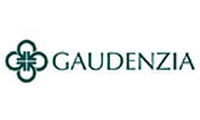Cocaine Treatment

Recovering from a cocaine addiction requires commitment and dedication to the process of recovery. long-term recovery from cocaine is possible, whether the process includes forming a sober support network, staying involved in aftercare or support groups, or developing healthy coping skills for relapse prevention. The first step is finding a treatment program that is right for you, so consider starting your treatment journey today.
What is Cocaine?
Cocaine is a powerful stimulant that is derived from the coca plant. It causes the brain to rapidly release the hormone dopamine, which causes feelings of euphoria and energy. It’s consumed by snorting the powder form, rubbing it on the gums, or by smoking the solidified form known as crack cocaine. A 2014 survey on the statistics of cocaine showed that there were approximately 1.5 million cocaine users in the United States, with most users between 18-24 years old.
Symptoms of Cocaine Addiction
There are multiple signs of cocaine addiction. Cocaine users may develop a tolerance, meaning they need to use more to feel the same high. As a person becomes addicted to cocaine, positive feelings will diminish and negative effects will increase, such as fatigue, nosebleeds, gastrointestinal problems, weight loss, paranoia, irritability, sleep problems and auditory hallucinations.
Here are signs of cocaine addiction to be aware of:
- Needing to use more cocaine to achieve the same high or desired effects.
- Noticing signs of withdrawal after stopping cocaine use.
- Using more cocaine or using for a longer period of time than intended.
- Feeling a persistent desire to use cocaine or unsuccessfully trying to cut down or control use.
- Spending time trying to obtain cocaine or recover from using it.
- Giving up important social obligations, hobbies or work responsibilities because of cocaine use.
- Continuing to use cocaine despite its negative impact on a physical or mental health condition.
Cocaine Addiction Help
Help is available if you are struggling with cocaine addiction, whether you need detox, residential treatment or outpatient treatment services. Long-term recovery from cocaine abuse can be achieved with dedication, hard work and a personalized treatment program that's right for you.
Cocaine Detox
The first step in cocaine treatment is to allow your body to detox. Many cocaine users can safely detox from cocaine on an outpatient basis, but those who have had trouble with depression or have another mental health condition may benefit from formal, medical detox services. Managed in an inpatient setting, a clinical team will closely monitor their patient to make sure depression symptoms do not escalate into suicidal risk, as this can be common during treatment of cocaine withdrawal.
There are no specific cocaine addiction medications approved, but a few are currently being tested for effectiveness. These include disulfiram, which is typically used to treat alcoholism, modanifil, often used to treat narcolepsy, and lorcaserin, which is used to treat obesity.
Residential Treatment
Once the body has detoxed from the effects of cocaine, residential treatment will often be the next step in a person's recovery journey. Residential treatment for cocaine offers sober housing, daily group therapy, individual counseling, and 24/7 support from staff. Depending on the facility, additional medical, mental health and educational services may also be offered. In an inpatient setting, residents will stay overnight for a period of 30-90 days in a shorter program, or 6 months to one year in a longer program.
Cocaine releases more dopamine than the brain is naturally used to, so recovering from cocaine addiction can take time. Mood, energy levels and sleep patterns can all be affected by cocaine addiction, so if you're struggling to feel normal again, be patient with your progress. A residential treatment center can be the perfect complement to the first few weeks of recovery as the body discovers a new normal, free of cocaine’s effects.
Many people are more vulnerable to relapse when they first get sober, so a residential treatment center will not only offer support during these difficult first few weeks, but it can also help people develop new coping skills to prevent relapse and get through triggers and cravings without using. In a residential treatment setting, establishing a recovery program from cocaine addiction may include topics ranging from preventing relapse to preparing for sober life back home.
Outpatient Treatment
Unlike residential treatment programs, outpatient treatment centers do not offer on-site housing or 24/7 support, but may recommend a halfway house or sober living home if needed. An outpatient treatment program may be sufficient for those who haven't been using cocaine frequently or in large amounts. Outpatient treatment for cocaine addiction can provide the recovery support needed while still allowing the person to manage their regular daily life.
Outpatient cocaine treatment typically includes a blend of individual counseling, group programming and mental health therapy. Topics ranging from relapse prevention to establishing a sober support network are among the many things discussed in a group setting. In outpatient treatment, the primary goal is maintaining sobriety, and can be used as either a first-line approach to recovery or a step-down method for those needing extra support after completing a residential treatment program.
Outpatient treatment for cocaine can last anywhere from one month to one year, depending on many factors like legal involvement, co-occurring disorders and prior history of relapse. Many outpatient programs also recommend additional support from community support groups like Narcotics Anonymous (NA), SMART Recovery or Celebrate Recovery.
Cocaine Recovery Stages
While every recovery journey is unique, there are three distinct stages to expect while recovering from cocaine addiction.
Early Recovery
Early recovery from cocaine addiction starts from the day you get sober all the way to the six month mark. During this phase most people are working on completing a treatment program. The primary goal of early recovery is to help people achieve sobriety and start building the foundation of recovery through sober and supportive peers, sober housing and by addressing any immediate mental health concerns. The most challenging aspects of this phase can be finding a sober environment to live in, as well as navigating the difficult emotions that come with cocaine withdrawal.
One of the most helpful things to do in early recovery is to simply keep working at it one day at a time. If you're patient and persistent about sticking with recovery, you'll start to feel better and your mind and body will begin getting used to a new normal without substances.
Maintenance Mode
After you stabilize in early recovery it's time to maintain the momentum you've established to stay sober from cocaine. Maintenance mode typically lasts from the time you're six months to two years sober. You'll notice your mind and body are clearer, and you’ll have balanced energy levels, mood, and sleep habits.
Relapse rates are higher during this time, so maintaining an established recovery practice is important to overcoming cocaine addiction. Stay plugged in to your support network and follow the recommendations of your counselor, sponsor or recovery coach. Many people relapse because they start to get overconfident and feel like they can manage their recovery without the help of others. Keep doing what works.
Advanced Recovery
Staying sober becomes a lifestyle in advanced recovery, also known as long-term recovery. Advanced recovery is typically considered as two years sober and beyond, due to a decreased risk of relapse. By this time cravings or triggers for cocaine use have subsided significantly and the mind is clear.
Even in long-term recovery, it's important to remember that addiction is a chronic condition, so it's beneficial to stay active in recovery and focused on staying sober. In advanced recovery, every day is filled with recovery-centric activities, and over time they can become second nature. Recovery-centric routines include exercise and nutrition, a stable job, a network of sober peers, and tried and true coping skills to use on hard days.
Whether you're getting ready to start treatment or are just finishing a program, it's important to remember that recovery is possible, even on difficult days. Understanding cocaine addiction, seeking help, and staying dedicated to a recovery program will guide you along the path to becoming sober.










